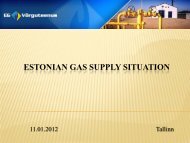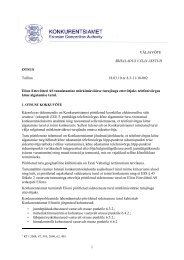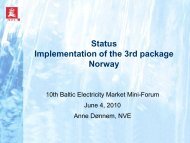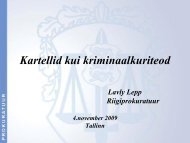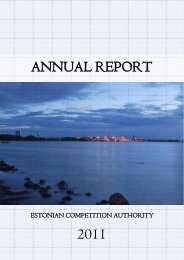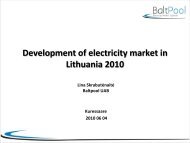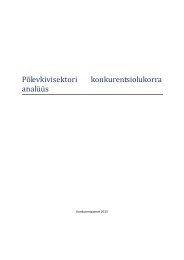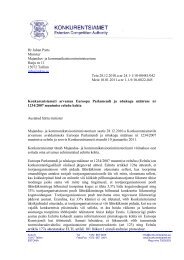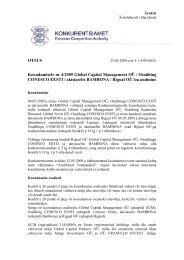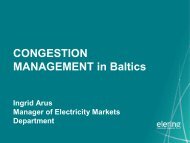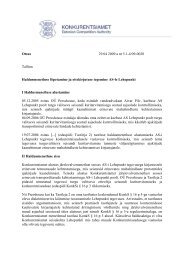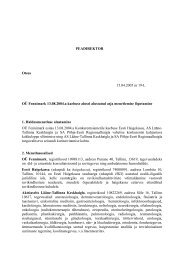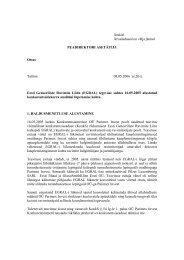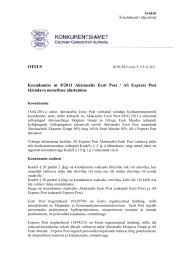ANNUAL REPORT 2010 - Konkurentsiamet
ANNUAL REPORT 2010 - Konkurentsiamet
ANNUAL REPORT 2010 - Konkurentsiamet
Create successful ePaper yourself
Turn your PDF publications into a flip-book with our unique Google optimized e-Paper software.
egional price regulation. In case of doubt it should first be clarified if the rules of price<br />
regulation have been violated. Then it should be assessed if it is simultaneously a crime<br />
related to competition described in the Penal Code § 399 (1 1 ). In case of a violation of the<br />
rules of price regulation specified in the law, where the Competition Authority does not find<br />
an abuse of a dominant position, a procedure can be initiated on the basis of the necessary<br />
elements of misdemeanour specified in the relevant specific law. Upon detection of a crime<br />
related to competition the main task of the body conducting proceedings is not the<br />
determination of a relevant market (as it is generally indisputable in case of a network<br />
monopoly), but an assessment of the possible abuse of a dominant position. Any minor<br />
violation of rules cannot be qualified as a crime related to competition, for which a fine up<br />
to 250 million EEK has been prescribed.<br />
Leniency Programme<br />
On 27 February <strong>2010</strong>, an amendment (Amendment Act) to the Penal Code, Code of<br />
Criminal Procedure and Competition Act entered into force which introduces a specific<br />
leniency programme. It means that a person that is involved in anti-competitive<br />
agreements, concerted practices or decisions of association of undertakings set out as<br />
punishable in § 400 of the Penal Code will have a chance to be released from liability or<br />
obtain a remarkable penalty reduction if the person will be the first to submit a leniency<br />
application to the Competition Authority and will meet other conditions stipulated in<br />
the Competition Act.<br />
Similar leniency programmes exist in almost all EU member states and are also used by the<br />
European Commission. Upon detection of an anti-competitive cooperation of operators<br />
(especially cartels) the major problems are verifiability of the act and a low amount of<br />
information available to the body conducting proceedings. Therefore the confession of a<br />
party itself and the submission of evidences will provide essential assistance in the detection<br />
and further verification of cartels. At the same time the party is motivated to cooperate with<br />
the Competition Authority and the Prosecutor’s Office due to the opportunity to be<br />
exempted from liability or achieve an essential reduction of the punishment, first and<br />
foremost in a case when the operator is actually wishing to stop participation in the anticompetitive<br />
cooperation.<br />
15



